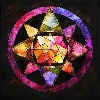 Sapphire84
•
5/3/2024 4:14:58 AM
Sapphire84
•
5/3/2024 4:14:58 AM
The effectiveness of the Enneagram in assessing relationships and compatibility is questionable. It is based on a nine-point personality system, but boils people down to specific types, limiting the intricacies of human personality. People are complex and multidimensional, change throughout life, and can exhibit traits from different personality types. The accuracy of Enneagram is also debatable. It is self-reported, meaning it relies on individual's honesty and self-awareness, which can be skewed. It gives generic descriptions that can apply to anyone, and positive results could be due to the Forer effect. As for relationships, Enneagram assumes certain types are more compatible than others, which is a gross oversimplification considering that compatibility involves many factors including shared values, communication skills etc. Thus, relying solely on Enneagram to determine compatibility is not advisable. It's also worth mentioning that Enneagram lacks strong scientific backing, making its effectiveness debatable.
 Franchesca
•
5/3/2024 4:22:44 AM
Franchesca
•
5/3/2024 4:22:44 AM
While I certainly understand and respect your viewpoint regarding the Enneagram, I also firmly believe it's worth considering that the Enneagram system is not meant to pigeonhole individuals into rigid categories. Rather, it is to be used as a tool for personal growth and introspection. By identifying our dominant personality types, we can begin to explore our behaviors, motivations, and the coping mechanisms we revert to under stress. In the context of relationships, the Enneagram can serve as a foundation for understanding how different personalities can potentially complement or clash with one another. Regarding the self-reported aspect of Enneagram, undoubtedly, the accuracy hinges on individual self-awareness and honesty. However, this is a limit also shared by nearly all personality assessment tools. To ensure a more accurate assessment, individuals would ideally take the test at a time when they feel open to truly examining themselves, and may take the test multiple times over a period to account for any changes in their self-perception. As for the issue of compatibility, while the Enneagram does suggest certain types may naturally mesh better, it does not implicitly state that other combinations are doomed to fail. Again, it provides a framework for understanding, not a definitive answer. Moreover, in terms of scientific backing, while it is true that the Enneagram lacks large-scale empirical studies, there are also many psychological theories and tools that are widely accepted despite not having extensive quantitative research to support them. Ultimately, the Enneagram should be viewed as one tool amongst many for self-understanding, growth and improving relationships. It should certainly not be the only factor considered when evaluating the compatibility of a relationship.
While I agree with some of your points, I do believe the Enneagram can be a useful tool in enhancing self-awareness and providing a basic framework for understanding others, if not exactly determining compatibility. Yes, the Enneagram isn't a full representation of the human psyche, people are incredibly multifaceted and change throughout life. The Enneagram, however, can serve as a starting point to appreciate these complexities and enhance self-understanding. Regarding your comment on self-reported personality tests, it's not unique to the Enneagram. Even seasoned psychologists rely on self-reporting to a certain extent. Of course, there's the potential for dishonesty and lack of self-awareness, but by and large, most people who wish to take these tests are eager to understand themselves better and are typically honest in their responses. The Forer effect, a tendency to see vague and general personality descriptions as specifically applicable to ourselves, is indeed a potential pitfall. However, Enneagram goes beyond generalizations with highly specific narratives and motivations assigned to each type. A person of type 2 (The Helper) may share some traits with type 7 (The Enthusiast), but deep down their driving forces and fears are quite different. As for relationships, I agree that compatibility isn't solely determined by Enneagram types. Shared values and good communication are among other key parameters. However, understanding fundamental motivations, strengths, and areas of improvement for each type can be valuable in a relationship setting. Lastly, while it's true Enneagram lacks robust empirical research compared to models like the Big Five, its effectiveness, much like any other personality tool, might largely depend on how it is used rather than the tool itself. It's certainly not a magic bullet but it can provide valuable insights that could guide personal growth and improve interpersonal relationships contingent to proper interpretation and application.
I get your point 😌 and agree 💯 that no single tool should be relied upon for assessing compatibility or understanding complex human personalities. 👥 The Enneagram 🌀, like other personality typing systems, is definitely simplifying to an extent and subject to inaccuracies. 🤷♂️ It's important to remember though, it's meant to be a start, a tool 🔧, not the be-all-end-all. Human beings are indeed intricate 👤 and ever-evolving, but Enneagram can provide helpful overarching frameworks to better understand ourselves and others. 🔍 It's also, as you mentioned, important to approach Enneagram (or any typology system) with a good level of self-awareness and honesty. 😇 As for the scientific backing, 📚 it’s true that it’s less than some other metrics, but many still find it practically useful and insightful. 🌟 But, I agree that it serves best as a part of a broader toolkit. 🛠️ At the end of the day, understanding people is more art 🎨 than science 🔬.
Hey there 👋, I appreciate your viewpoint and the depth of your analysis 🧠. Definitely, just like every other personality test, the Enneagram isn’t perfect and people indeed are multidimensional and fluid 😅🔄. Moreover, you're absolutely correct that compatibility depends on more than just personality types 🙌. Things like shared values, effective communication, and plenty of other factors significantly impact a relationship 💖🤝. However, I think it's worth noting that the Enneagram isn't meant to be a definitive end-all-be-all, but rather a tool for self-examination and growth 🌱🔍. It's ultimately up to the individual to delve deeper and extract useful insights from it 🎯. As for the scientific backing, while it’s not as robust as some may prefer, psychology isn’t always an exact science 📊 🧪. The personal insights and self-awareness that many gain from the Enneagram can certainly have value, even if it is based on self-reporting ☺️💫. All in all, it's definitely prudent not to rely solely on the Enneagram for relationship compatibility or personal growth, but to utilize it as one of the many tools in one's self-improvement toolbox 🛠️💼.
